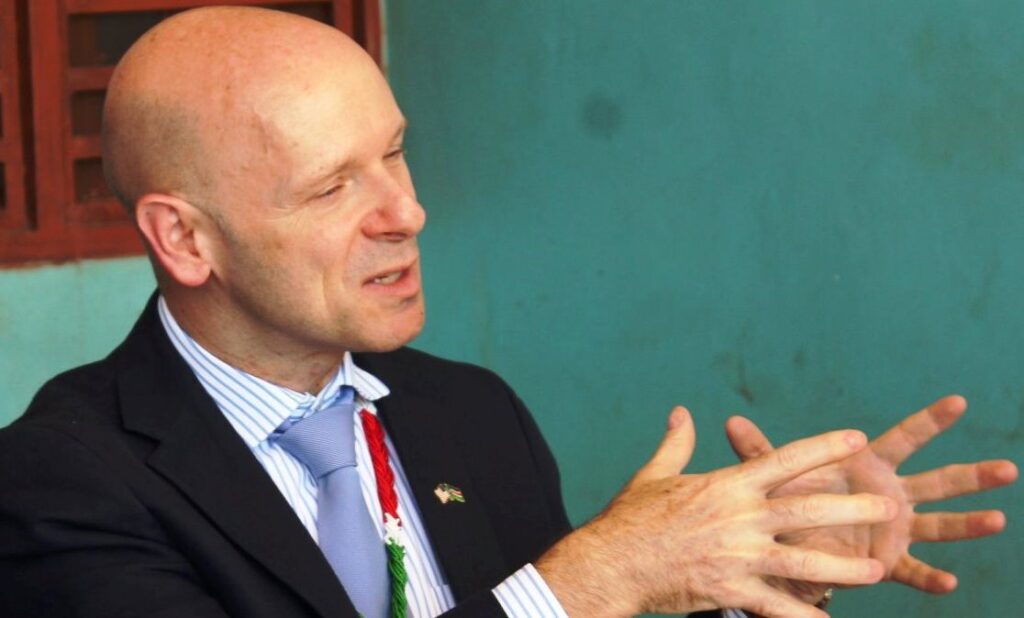The United States Ambassador to South Sudan is calling on all parties to the Revitalised Agreement on the Resolution of Conflict in South Sudan to reach a consensus on the formation of a unity government.
According to the agreement, parties are expected to form a transitional unity government by May 12th. However, the issue has been thorny as the government insists it will go on with the formation on the stipulated date while the main opposition parties say the unity government can only be formed once security arrangements have been implemented.
The Intergovernmental Authority on Development IGAD last week invited all parties to Addis Ababa, Ethiopia to discuss the implementation of the agreement.
Ambassador Thomas Hushek addressing the media at the US Embassy in Juba today, Monday said the meeting is crucial but the parties need to compromise in order to reach a consensus on the date for the formation. He said the US will support a joint decision.
“It’s not on us to favor one date or another date but what we are telling all parties and the government and opposition and IGAD is that any decision that’s taken should be taken by consensus by all the parties in the spirit of political compromise that characterizes the overall peace agreement,” he said.
He also called on the parties, after reaching a consensus to convey the information to the people of South Sudan to quell anxieties and worries over the implementation process.
“So we call on people to compromise to come up with a consensus solution and then convey that solution very openly and explain the rationale to the public of South Sudan who need to know what is going on so that anxiety doesn’t appear so that people don’t start thinking the country is going to fall back into war,” he added.
The parties to the agreement have attributed the slow implementation of the peace agreement and especially the security arrangements to lack of funds. The Reconstituted Joint Monitoring and Evaluation Commission (RJMEC) last week said critical tasks in the implementation of peace deal including activities towards the unification of forces, which involve the process of cantonment and training, and the determination on the number and boundaries of states, and the composition and restructuring of the Council of States are still pending.
Hushek says the South Sudan government and parties are responsible for resourcing the security arrangements, saying they need to prioritize the needs. He says what the government has put in is not enough.
“They say money is needed for particular steps in the security process, they need to put in considerable resources that they have in this area and the government does have money as you know,” he added.
The diplomat went on to say that many parts of the agreement do not require funds but a will from the parties.
“The ability to provide figures, locations to verify the numbers and locations of your troops that should have been done by all parties that have troops and that’s been very slow to come. That doesn’t cost any money it’s just a matter of complying, obeying the provisions of the ceasefire,” he said.
Ambassador Hushek said although fighting has significantly reduced across the country, violations to the agreement are still being witnessed in some parts.
“There are other places where there are some technical violations, some locations that are schools and hospitals that are still occupied by troops or opposition troops those are a violation of the peace agreement. It doesn’t cost anything to move your people out of those places,” Hushek said.
He reiterated that the US is South Sudan’s greatest funder of humanitarian activities and peace implementation mechanisms, CTSAMM, RJMEC, all part of the peace process.




